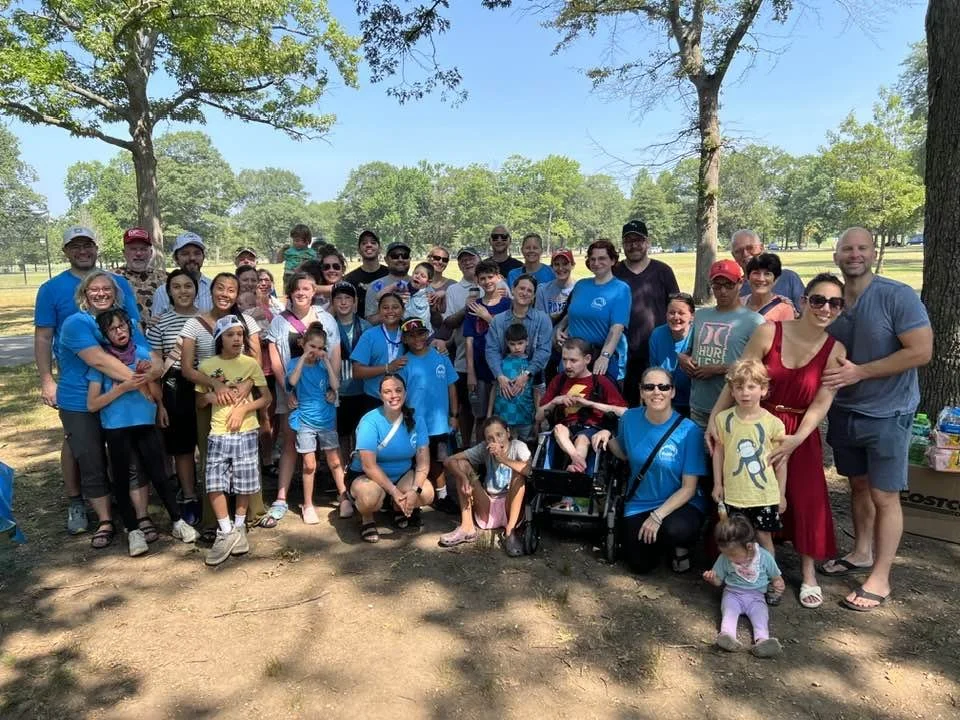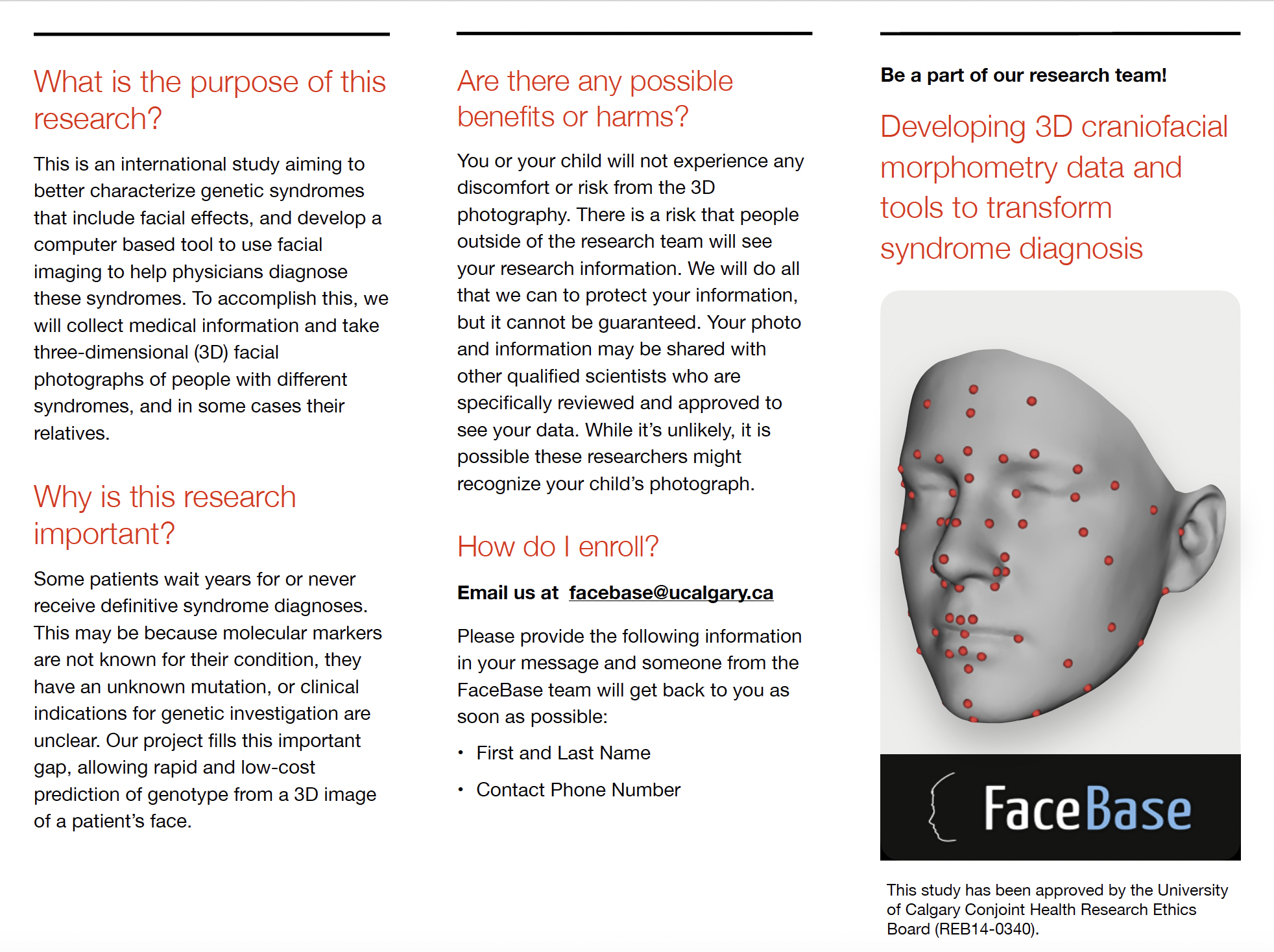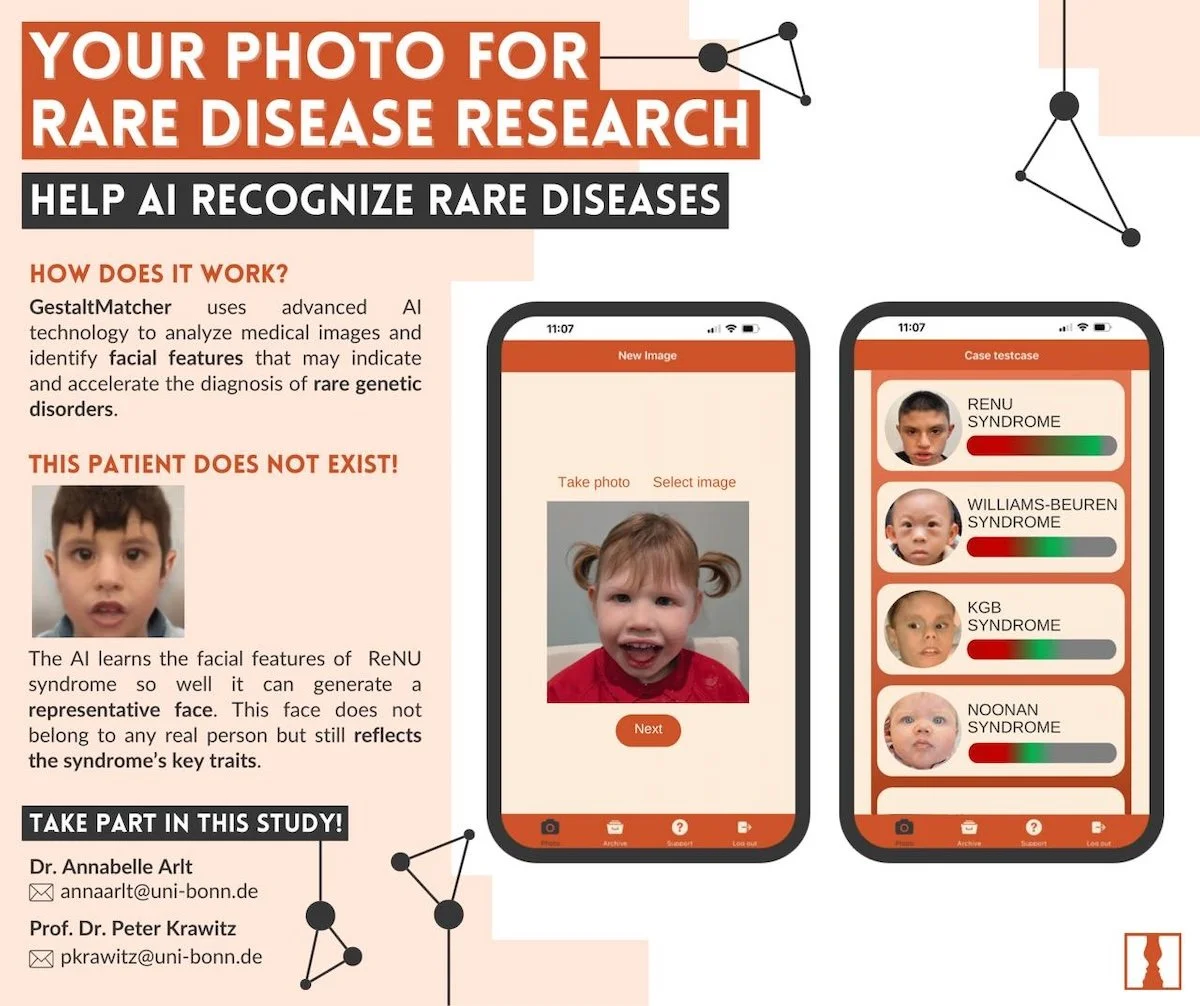August 2025 Newsletter
Dear ReNU Syndrome United Community,
This July, over 200 researchers, clinicians, families, and ReNU kids came together at the ReNU Hope Conference, a gathering of hearts 💙 and minds 🧠 to share knowledge, build community, and advance the mission of understanding and treating ReNU syndrome. The energy was palpable, and the connections made will fuel our work for the future!
Highlights included:
Groundbreaking presentations from leading scientists
Family panels sharing lived experiences
Interactive sections on care, advocacy, and research
Please enjoy some images and videos from the Conference, and see below for additional opportunities to get involved!
With gratitude and renewed hope,
The Board of ReNU Syndrome United
📷 #Blue4ReNU Campaign 📷
Wear Blue, ReNU Hope, Tag Friends, Donate!
Join the movement to raise awareness and support for ReNU syndrome! The #Blue4ReNU campaign is a simple but powerful way to show solidarity and spark conversations.
Participate:
🎽 Wear blue and share your photo with #Blue4ReNU
#️⃣ Tag friends to spread the word and grow the movement
💸 Donate any combination of $4 and $2 to symbolize the RNU4-2 gene & fund critical research
#️⃣ Tag @ReNUSyndromeUnited on social media & encourage others to join in!
Every post, tag, and dollar makes a difference. Let’s turn the world #Blue4ReNU
ReNU Clinical Survey Summary
-
To participate in the ReNU Clinical Survey or learn more, please email the Northwell research team at NGHI@northwell.edu. The research team is available Monday-Friday, 9am-5pm ET to answer any questions. You will then receive an electronic consent form; once signed and returned, the survey link will be provided.
If preferred, we will also have a research table at the ReNU Syndrome Conference on July 24th, 2025, and can consent interested families and answer any questions you may have at that time.
The survey will take approximately 45 minutes to complete and will ask questions focused on pregnancy history, genetic testing, medical history (including a brief review of each body system), and family history.
-
This survey is led by Dr. Ian Krantz, Kelsey Crocker, and Asbaa Khan with the support and expertise of ReNU Syndrome United board members and advisors.
The goal of the ReNU Clinical Survey is to perform a cross-sectional study by collecting and analyzing information on the spectrum of features that individuals with ReNU syndrome experience and how these features change or progress over time. Understanding the spectrum of symptoms and their progression empowers parents and guardians to provide optimal care. This study will contribute valuable data to researchers investigating and developing treatments for this condition. Furthermore, it will enhance clinicians' and genetic counselors' understanding of this novel diagnosis, improving recognition of the characteristic features of ReNU syndrome.
INDEED Study: Investigating ReNU
-
If you suspect that a family member might have ReNU and would like to learn more about the INDEED study, please contact Ms. Zafiirah Baurhoo in Dr. Turro's group by emailing zafiirah.baurhoo@mssm.edu. If your family member already has a clinically confirmed genetic diagnosis of ReNU / RNU4-2 or RNU2-2 related disorder and you are interested in participating in the INDEED study, please request a clinical appointment with Dr. Barbosa by emailing MSSMClinicalGenetics@mssm.edu.
-
Drs. Ernest Turro and Mafalda Barbosa at the Icahn School of Medicine at Mount Sinai have established the INDEED research study to investigate ReNU and other newly discovered genetic conditions. Dr. Turro leads one of the research teams that discovered that mutations in RNU4-2 cause ReNU (Greene et al. 2024). His group also discovered that mutations in a closely related gene, RNU2-2, cause a similar neurodevelopmental disorder (Greene et al. 2025). Dr. Barbosa has over 15 years of experience as a clinical geneticist with a focus on diagnosis and medical management of patients with rare neurodevelopmental disorders. The INDEED study offers free research-use DNA sequencing of the RNU4-2 and RNU2-2 genes.
Strategic Funding Priorities
Roadmap to Treatments
Your support fuels progress! We’ve identified 5 key initiatives critical to advancing research and care for ReNU syndrome
-
Initiate a longitudinal study to track ReNU progression, inform clinical trials, and identify measurable outcomes. This is an immediate top priority, as confirmed by our recent scientific symposium.
-
Establish a centralized repository for collecting and storing biospecimens from individuals with ReNU syndrome in order to support research
-
Support the establishment of an animal model that mimics ReNU syndrome for the purposes of studying the effects of the RNU4-2 mutation and to test potential therapies. These models are foundational tools for preclinical research.
-
Develop standardized care protocols for families and clinicians to enable earlier diagnosis and improve patient care.
-
Support biomarker development, gene therapy feasibility, and academic-biopharma collaboration to prepare for future clinical trials.
FaceBase: 3D International Facial Recognition Study
-
The FaceBase study team can be reached via email at facebase@ucalgary.ca. Participation in the study requires less than twenty minutes. More information can be found at https://hallgrimssonlab.ca/.
-
The FaceBase team from the University of Calgary is conducting an international study aiming to better characterize genetic syndromes that include facial effects. This work includes the development of a computer-based tool that uses facial imaging to assist physicians in diagnosing these syndromes and assess severity to identify the likelihood of disease-related complications.
Many patients wait years for a definitive syndrome diagnosis or never receive one. Even with a diagnosis, understanding the severity and the likelihood of disease-related complications is crucial for clinical decision-making. This may arise due to the absence of known molecular markers for their condition, the presence of an unidentified mutation, or unclear clinical indications for genetic investigation. The FaceBase project aims to bridge this critical gap by enabling the rapid and cost-effective prediction of genotype and associated condition severity through a 3D image of a patient's face. During study participation, video recording is used instead of still-frame pictures to minimize challenges that can arise from movement and sensitivities during flash photography. This video is used to select the best moment/image to generate a 3D picture of the participant.
GestaltMatcher: 2D International AI Facial Recognition
-
Contact Dr. Annabelle Arlt at annaarlt@uni-bonn.de
or contact Dr. Peter Krawitz at pkrawitz@uni-bonn.de
-
GestaltMatcher uses advanced Al technology to analyze medical images and identify facial features that may indicate and accelerate the diagnosis of rare genetic disorders.
Rare-X: ReNU Patient Registry
-
Register today: https://rare-x.org/RNU4-2
Contact RareXsupport@globalgenes.com for technical issues or questions about the platform.
-
Rare-X is one of our registries for collecting data about RNU4-2 / ReNU syndrome and ALL are welcome to participate. Treatment options may require that we have robust data that is continually updated.
Treatment Priorities: Clinical Endpoints
-
CLICK HERE TO TAKE THE TREATMENT PRIORITY POLL NOW
-
If there was a treatment for your family member with ReNU syndrome, what would you want it to address?
Your voices and perspectives matter! This poll will help guide us towards identifying clinical endpoints for future potential treatments for ReNU.












